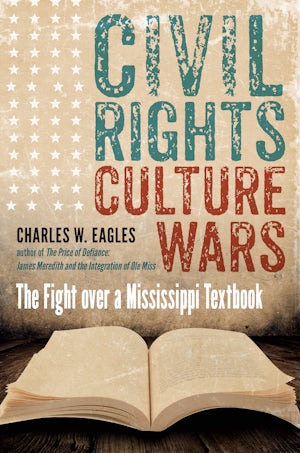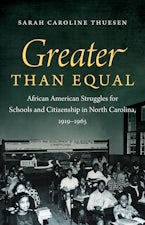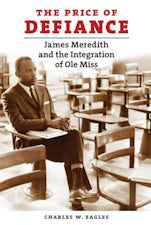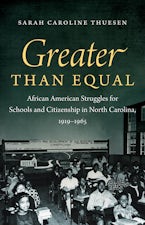Civil Rights, Culture Wars
The Fight over a Mississippi Textbook
By Charles W. Eagles
312 pp., 6.14 x 9.21, 6 halftones, notes, index
-
Hardcover ISBN: 978-1-4696-3115-8
Published: March 2017 -
E-book PDF ISBN: 979-8-8908-5190-1
Published: February 2017 -
Paperback ISBN: 978-1-4696-5480-5
Published: August 2019 -
E-book EPUB ISBN: 978-1-4696-3116-5
Published: February 2017
Buy this Book
- Hardcover $34.95
- Paperback $35.95
- E-Book $19.99
For Professors:
Free E-Exam Copies
Awards & distinctions
McLemore Prize, Mississippi Historical Society
A CHOICE Outstanding Academic Title, 2017
One of CHOICE Magazine’s Top 25 Academic Books of 2017
Charles W. Eagles explores the story of the controversial ninth-grade history textbook and the court case that allowed its adoption with state funds. Mississippi: Conflict and Change and the struggle for its acceptance deepen our understanding both of civil rights activism in the movement’s last days and of an early controversy in the culture wars that persist today.
About the Author
Charles W. Eagles is William F. Winter Professor of History Emeritus at the University of Mississippi.
For more information about Charles W. Eagles, visit
the
Author
Page.





